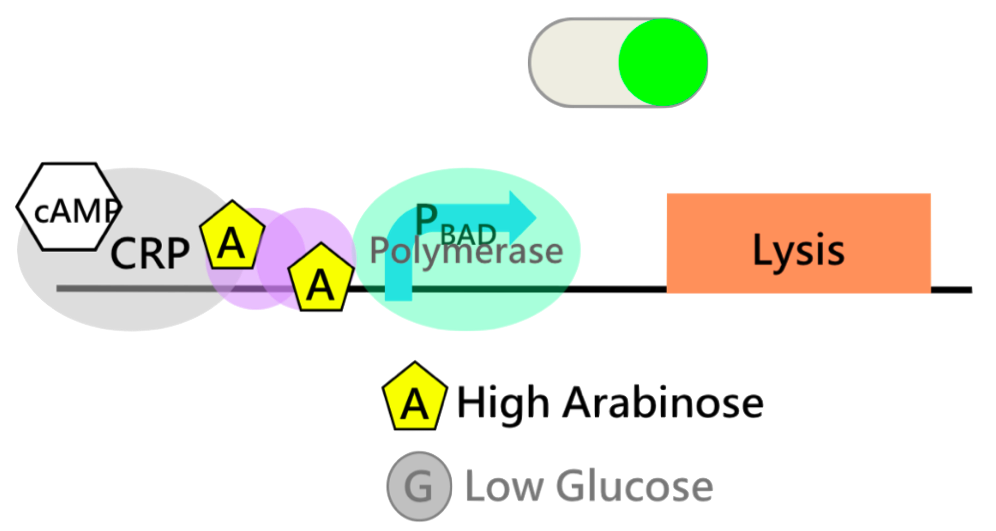How did we address the safety issues in our project?
- Non-pathogenic chassis, i.e. E. coli DH5α, E. coli (DE3), were chosen.
- The chassis is in small enclosed space as a barrier to prevent contamination.
- "Suicide-gene inducers" in the enclosed space can induce expression of the suicide gene to kill E. coli in the bio-sensing strip.
Our E. coli can sense urea glucose. When the glucose level is high, the bacteria can express red fluorescent proteins (RFP) as a reporter to give a signal which can be detected at the state of excitation. After the detection, the “suicide-gene inducers”, arabinose, induce the PBAD promoter (BBa_K206000) and then activate the transcription of the lysis gene (BBa_K117000). The functional assays are showed in Bio-Safety System (Project/ Results).

Building a safe lab
We operated the project in the Biosafety Level 1 (BSL-1) Lab. The space is suitable for experiments in all of our chassis which are Risk Group 1 organisms. Additionally, we always handled biological materials in a laminar flow hood. All of biowastes were autoclaved at the typical 121 °C/15 psi for 15 minutes.
Obeying the laws and regulations of biosafety in our Country/ University
Regarding the Environmental Protection, Safety and Health Center is responsible for the safety of biology labs at National Cheng Kung University (Guidelines for Laboratory Biosafety). And Centers for Disease Control (CDC) is the department to govern biosafety for research laboratories in our country (Laboratory Biosafety Management: A Compilation of Regulations and Administrative Guidance).

